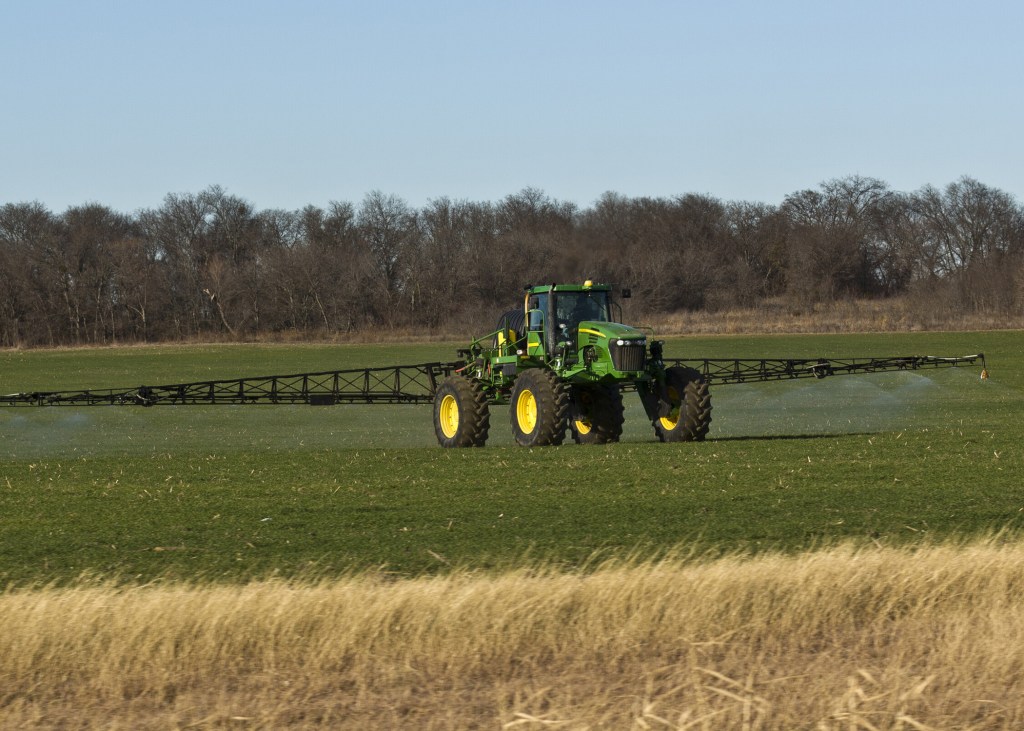Growers must manage 2022 high input costs
Published 9:39 am Thursday, January 13, 2022

- Careful planning and management is needed for a farm to break-even financially this year as farm input costs have risen dramatically in the past months. (Photo by Can Stock Photo Inc./justtodd) Alt text -- A tractor with a spray rig crosses a wheat field.
By Bonnie Coblentz
MSU Extension Service
High fertilizer prices continue to be a hot topic any time farm professionals gather, but now is not the first time costs have doubled or even tripled for some crop staples.
Larry Oldham, soil specialist with the Mississippi State University Extension Service, said producers must plan around dramatically rising costs.
“Some December reports show potash prices nearing historic high prices over $800 per ton, and individual nitrogen fertilizer prices increasing 5% to 9% within one month,” Oldham said.
While these high prices can seem staggering, fertilizer price increases of this magnitude have happened before.
“The late 2000s was the time of the great fertilizer price reset,” Oldham said. “Potash prices had been 14 cents a pound for many years, but increased domestic and international grain demand more than quadrupled the price for potash.”
Oldham said that means the current fertilizer price volatility is not uncharted territory.
“This is a moment for patience as the storm swirls,” Oldham said. “Large-scale components — some anticipated and some not — interacted in late 2021 to develop the current situation. We anticipate these interactions will continue through winter.”
Speaking at the 2021 Row Crops Short Course in December, Brian Mills, an agricultural economist at the Delta Research and Extension Center in Stoneville, said this input volatility makes crop planning for 2022 difficult.
“Enterprise and planning budgets are built annually with the MSU Budget Generator,” Mills said. “We gather data from Mississippi companies on costs such as herbicide, pesticide, fertilizer and equipment, and a multidisciplinary team develops the budgets based on common production practices and recommendations.
“The big thing for 2022 is the input costs are significantly higher than the previous year, and they went up after the data was collected in October,” he said. “Actual costs will vary for each producer, and it is important for you to do your own cost estimates and determine what your breakeven will be for the coming year.”
Mills said careful planning and management is needed for a farm to break even financially.
“If you develop an enterprise budget, you can plan out where costs can be cut, and you can determine which crop will be most profitable for your situation,” Mills said.
Since no one can anticipate market prices with certainty, growers trying to make crop decisions for the 2022 season can take steps to limit their costs.
“We should concentrate on components of the production system we can control,” Oldham said. “Many variables determine the ultimate success of a crop, such as variety selection, water management, insects, nematodes, diseases, weed pressure and climate.”
One way to cut high input costs is to be efficient with fertilizer application. Careful soil tests determine phosphorus and potash fertilizer needs and help avoid overapplication of these nutrients. Then, be sure to apply at the best time and in the best way for highest efficiency.
MSU’s Enterprise and Planning Budgets, along with the MSU Budget Generator and various Decision Tools that can be used to manage farm costs, can all be found at https://www.agecon.msstate.edu





